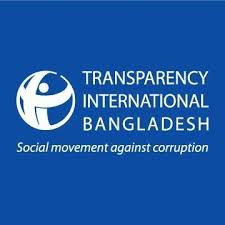Transparency International Bangladesh (TIB) Executive Director Dr Iftekharuzzaman has voiced strong concerns that the country’s reform momentum has stalled, with old political practices re-emerging under the guise of new leadership.
Despite the high hopes that followed the fall of the previous authoritarian government, meaningful progress remains elusive, he said while speaking at the launch of a TIB report titled “One Year After the Fall of the Authoritarian Government: Expectations and Realities” in Dhaka on Monday.
“Although the interim government began its journey with significant reform potential, the promise has been overshadowed by stagnation and a failure to uphold the spirit of anti-discrimination,” Dr Iftekharuzzaman said.
He noted that Bangladesh’s political culture remains largely unchanged. “Those who were empowered by the anti-discrimination movement and now see themselves as the next ruling force have carried forward a legacy of partisanship, extortion, land grabbing, and political domination,” he warned.
According to Dr Iftekharuzzaman, these entrenched practices pose a major obstacle to genuine state reform. “Power has shifted hands, but the mindset hasn’t changed. One party’s influence has simply been replaced by another’s, perpetuating the same politicisation that the reform movement sought to eliminate,” he said.
He criticized what he described as a “turn-taking” mentality among political actors. “There’s a pervasive belief among some that it’s now ‘our turn,’ which only hinders the progress of reform,” he added.
The TIB head also raised alarm about the growing influence of religion-based politics, calling it a threat to building a secular, equitable, and discrimination-free society. “This trend runs counter to the values of inclusivity and equal rights,” he stated.
In addition, he expressed concern over the continued absence of key democratic institutions. “It’s deeply troubling that, over the past year, we have had no functioning Information Commission or Human Rights Commission. The interim government’s failure to prioritize this reflects a concerning lack of commitment,” he said.
Dr Iftekharuzzaman further criticized the lack of reform in the country’s cybersecurity laws, which he said still contain provisions that suppress freedom of expression. “This inaction signals the government’s unwillingness to break away from a culture of fear,” he observed.
He also pointed to the lack of reform in intelligence agencies, saying they remain untouched despite their central role in perpetuating authoritarianism over the last 16 years.
Regarding law and order, Dr Iftekharuzzaman said the interim government has not fully regained control, and instability within institutions like the police and civil administration continues. “The emergence of a so-called ‘King’s Party’—a power circle forming even before proper justice, reform, or elections—reflects a disturbing return to political maneuvering,” he said.
He also warned that the window of opportunity opened by the fall of the former regime is rapidly closing. “If we fail to bring about genuine change during this rare moment of potential, we all share the responsibility,” Dr Iftekharuzzaman said.

